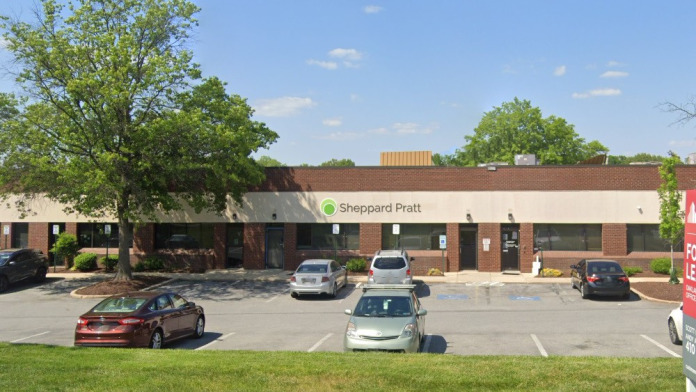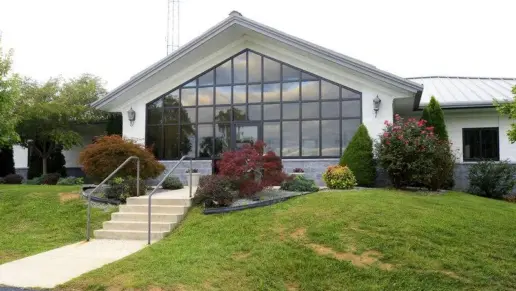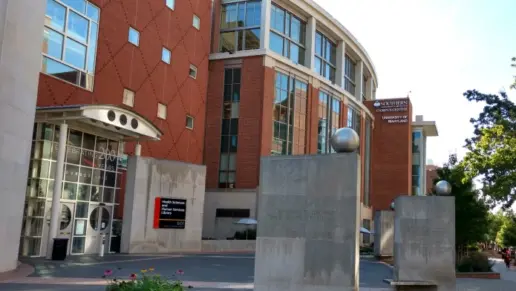About Sheppard Pratt – Outpatient Mental Health Center – Columbia
The Sheppard Pratt Outpatient Mental Health Clinic provides mental health and addiction treatment to adults, children, and adolescents in Columbia, Maryland. The facility strives to be an environment that’s safe and welcoming for all patients. The staff members are trained to help with a variety of life challenges, behavioral issues and relationship issues. Some of the services that are included are psychiatric assessments, couples and marital counseling, and family psychoeducation.
An additional service that I like that Sheppard Pratt offers is telehealth services. It allows patients to receive treatment from the comfort of their homes if they’re unable to receive in person treatment.
The clinic treats addiction through counseling, drug and alcohol use support groups and drug and alcohol education. In individual counseling, therapists will teach clients different coping strategies to manage stress or other emotional factors that may be contributing to addiction. Clients will likely also be taught different ways to address their cravings. Therapeutic approaches that may be used could include motivational interviewing and anger management.
Along with counseling, medication may also be provided to help with reducing any symptoms of withdrawal.
The education services can help clients learn to recognize their triggers and better understand their addiction and mental health issues. Drug and alcohol use support groups are those where patients can address their addiction issues among supportive and understanding individuals. Patients have the opportunity to practice their coping strategies with group members and develop their communication and interpersonal skills. They can also gain knowledge from their peers on how to better manage their addiction issues.
Latest Reviews
Rehab Score
Gallery

Location
Other Forms of Payment
Private insurance refers to any kind of healthcare coverage that isn't from the state or federal government. This includes individual and family plans offered by an employer or purchased from the Insurance Marketplace. Every plan will have different requirements and out of pocket costs so be sure to get the full details before you start treatment.
Self-pay involves paying for treatment out of your own pocket. You can use savings or credit, get a personal loan, or receive help from family and friends to fund your treatment. If you don't have insurance or your insurance plan doesn't cover a specific program, self-pay can help ensure you still get the care you need.
Medicare is a federal program that provides health insurance for those 65 and older. It also serves people under 65 with chronic and disabling health challenges. To use Medicare for addiction treatment you need to find a program that accepts Medicare and is in network with your plan. Out of pocket costs and preauthorization requirements vary, so always check with your provider.
Medicaid is a state based program that helps lower-income individuals and families pay for healthcare. Medicaid covers addiction treatment so those enrolled can use their coverage to pay for rehab. When a program accepts Medicaid the client often pays very little or nothing out of their own pocket.
Addiction Treatments
Levels of Care
Treatments
Mental health rehabs focus on helping individuals recover from mental illnesses like bipolar disorder, clinical depression, anxiety disorders, schizophrenia, and more. Mental health professionals at these facilities are trained to understand and treat mental health issues, both in individual and group settings.
Substance rehabs focus on helping individuals recover from substance abuse, including alcohol and drug addiction (both illegal and prescription drugs). They often include the opportunity to engage in both individual as well as group therapy.
Programs


Clinical Services
During dialectical behavior therapy sessions, you'll review the challenges you faced the previous week and the feelings you experienced during those times. You and your therapist will engage in problem solving, discussing how you can handle those situations in the future for a better outcome. This involves keeping a diary throughout the week to track your emotions.
Group therapy is any therapeutic work that happens in a group (not one-on-one). There are a number of different group therapy modalities, including support groups, experiential therapy, psycho-education, and more. Group therapy involves treatment as well as processing interaction between group members.
In individual therapy, a patient meets one-on-one with a trained psychologist or counselor. Therapy is a pivotal part of effective substance abuse treatment, as it often covers root causes of addiction, including challenges faced by the patient in their social, family, and work/school life.
The focus of trauma therapy is to heal the emotional wounds that occurred when you witnessed or experienced a traumatic event. Therapy helps you process this trauma emotionally and mentally so you develop healthier coping skills and improve your quality of life.
Whether a marriage or other committed relationship, an intimate partnership is one of the most important aspects of a person's life. Drug and alcohol addiction affects both members of a couple in deep and meaningful ways, as does rehab and recovery. Couples therapy and other couples-focused treatment programs are significant parts of exploring triggers of addiction, as well as learning how to build healthy patterns to support ongoing sobriety.
Research clearly demonstrates that recovery is far more successful and sustainable when loved ones like family members participate in rehab and substance abuse treatment. Genetic factors may be at play when it comes to drug and alcohol addiction, as well as mental health issues. Family dynamics often play a critical role in addiction triggers, and if properly educated, family members can be a strong source of support when it comes to rehabilitation.
Recreational therapy (aka therapeutic recreation) uses creative and fun activities to help with addiction recovery. Recreational therapists lead patients in entertaining and engaging activities like sports or games; art (drawing, painting, sculpture); drama, music, and dance; and/or community outings (field trips) to improve patients' physical, social, and emotional well-being.
Amenities
-
Private Setting
Contact Information
9030 Route 108
Suite A
Columbia, MD 21044


